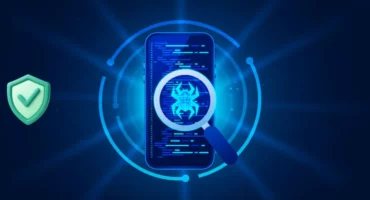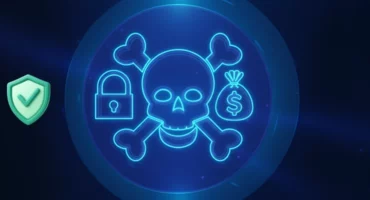5-Eyes, 9-Eyes & 14-Eyes Alliance Explained: Is Your Privacy at Risk?
Is the ability to retain your privacy just a myth? 5/9/14 countries monitor their citizens online and share personal data with their partners. All for the greater good, they say. But what these alliances actually are and how do their work affect you? Is it possible to escape from ever-reaching surveillance? Read along to find out.

The 5/9/14 eyes alliances: What are they and how do they differ?
The Five Eyes (FVEY), Nine Eyes, and Fourteen Eyes are state intelligence alliances that monitor and share internet users’ activity and data to protect national security. This cooperation started with the UKUSA Agreement — a treaty for joint cooperation in signals intelligence first shaped during World War II and later signed at the start of the Cold War.
Five Eyes Countries
- US, UK, Canada, Australia, New Zealand form the 5 Eyes (FVEY) Alliance.
Initial objective of the 5 Eyes was to monitor the Soviet Union and its allies. But as the political landscape changed, the alliance’s aims did too. 5 Eyes countries have intelligence agencies such as the NSA (US), GCHQ (UK), and other government agencies collecting mass signals intelligence data. They spy on people throughout the world and share this data with each other. 5 Eyes mainly tracks geopolitical adversaries, like China or Russia. Still, no country is truly free from such surveillance.
Nine Eyes Countries
- US, UK, Canada, New Zealand, Australia, Denmark, France, the Netherlands, Norway are all part of the 9 Eyes Alliance.
Then the UKUSA Agreement extended — four more countries joined to create the 9 Eyes. This way, the intelligence alliance got into mainland Europe. Although these four countries can use the same resources as the 5 Eyes, they can’t access all of the data gathered. 9 Eyes states may also share their data with the NSA or GCHQ secret agencies.
Fourteen Eyes Countries
- US, UK, Canada, New Zealand, Australia, Denmark, France, the Netherlands, Norway, Germany, Belgium, Italy, Sweden, and Spain form the 14 Eyes Alliance.
The 9 Eyes plus five more countries equaled the 14 Eyes. This alliance has less power than the 5/9 Eyes — one can see them as affiliates of the other alliances. Still, we don’t know specific details of the agreement between the 14 Eyes and 5 Eyes, although declassified files mention links to the London signals intelligence board.
How do 5/9/14 eyes alliances affect your privacy?
Contrary to popular belief, these alliances don’t only collect data on high-profile figures. Their operation affects many residents of the member states. At least those who use the Internet. The 5/9/14 eyes states are some of the most technologically developed in the world — they’re home to many cybersecurity businesses, including VPN services, secure messaging app developers, and more. Governments of these countries often force businesses to provide user data or disclose their customers’ information. For example, the US government asked for more user data from companies than any other country in 2020.
All eyes on VPNs: How do 5/9/14 alliances affect VPN users?
Privacy is hard to maintain in the digital era. Many turn to VPNs — 44% percent of VPN users use it for anonymous browsing, while 37% for secure communication. But what happens when 5/9/14 eyes are involved? Let’s tackle some VPN-related terms first to get a clearer picture.
- VPN jurisdiction — the country where a VPN provider is legally based. Depending on how relevant authorities oversee VPN use, many VPN providers choose to base their company outside of their country of residence.
- VPN provider location — where the VPN provider is located as a business, which may not be the same as where the company maintains its VPN servers.
- VPN server location — where the VPN provider has decided to set up servers. One VPN provider usually has servers in multiple locations, so you can choose from many locations.
So, say, a VPN provider X is working under the US government jurisdiction. And if the US authorities ask X for user data for a specific reason, the latter is obliged to do so. Another example could be of Denmark. Although the country is part of the EU with GDPR privacy standards, it has to share electronic data with other 9 eyes member countries when required. So, VPN providers working under the 5/9/14 eyes jurisdiction have to hand over user data to the authorities when asked. A few examples include IPVanish, PureVPN, EarthVPN. They provided user logs to authorities who were investigating various criminal cases.
Still, we can’t state that belonging to these 14 jurisdictions automatically makes a VPN service unsafe. Much depends on its internal policies and values. Most premium VPN services follow strict No Logs policies, meaning they don’t collect any user data. So, even if a third party approaches them for any data, they have nothing to give.
What can you do to avoid 5/9/14 Eyes?
No one would want their private data shared with third parties, we totally get it. To retain your privacy online and avoid mass surveillance from alliances that even target their own citizens, we advise you the following:
- Check the jurisdiction of the online services you are using. For example, choose a VPN operating outside the reach of intelligence-sharing partner countries.
- Always research the services you use to make sure they haven’t committed any privacy violations, and consider using private search engines to verify their trustworthiness. You should also check out their privacy policy to know what data they collect and for what.
- Encrypt your data with a VPN. Protect your personal information so that nobody can access it in case it gets into the wrong hands.
Need a reliable VPN provider that will safeguard your data and let you keep your privacy? Test-drive VeePN!
How to secure your data with VeePN
VeePN follows a strict No Logs policy. Company’s jurisdiction in Panama reinforces this. VeePN doesn’t store any connection or activity logs that can lead to a specific user, like the IP, browsing and downloading history, DNS queries. But to run a reliable and successful VPN service, it still needs some of our users’ data, like your account information, means to contact you, troubleshooting records. What else does VeePN offer?
- Top-grade encryption. VeePN protects your data with AES-256 encryption, the strongest one to date. It hides your online activity by sending your data through its encrypted VPN servers instead of the ones owned by your internet service provider (ISP). If anyone tries to snoop on your traffic, it’ll seem like total nonsense to them.
- 10 simultaneous connections. Secure your entire tech army — use VeePN on up to 10 devices with one subscription. Or you can set up VPN on your router to protect the whole home network!
- Extra security features. You can step up your security game with VeePN NetGuard — it detects malicious websites and stops any damage that they can carry to your device. It also prevents trackers and annoying ads from clogging your online experience.
See it all for yourself. Get the privacy you deserve.
FAQ
It is a state intelligence alliance that monitors and shares internet users’ activity and data, often in cooperation with agencies like the communications security establishment in Canada. The alliance comprises the US, UK, Canada, New Zealand, Australia, Denmark, France, the Netherlands, Norway, Germany, Belgium, Italy, Sweden, and Spain.
It’s one of the member states of the 14 Eyes surveillance alliance, which includes the US, UK, Canada, New Zealand, Australia, Denmark, France, the Netherlands, Norway, Germany, Belgium, Italy, Sweden, and Spain.
It’s a member state of the state intelligence alliance (the US, UK, Canada, New Zealand, Australia) that monitors and shares internet users’ activity and data to protect national security.
VeePN is freedom
Download VeePN Client for All Platforms
Enjoy a smooth VPN experience anywhere, anytime. No matter the device you have — phone or laptop, tablet or router — VeePN’s next-gen data protection and ultra-fast speeds will cover all of them.
Download for PC Download for Mac IOS and Android App
IOS and Android App
Want secure browsing while reading this?
See the difference for yourself - Try VeePN PRO for 3-days for $1, no risk, no pressure.
Start My $1 TrialThen VeePN PRO 1-year plan








